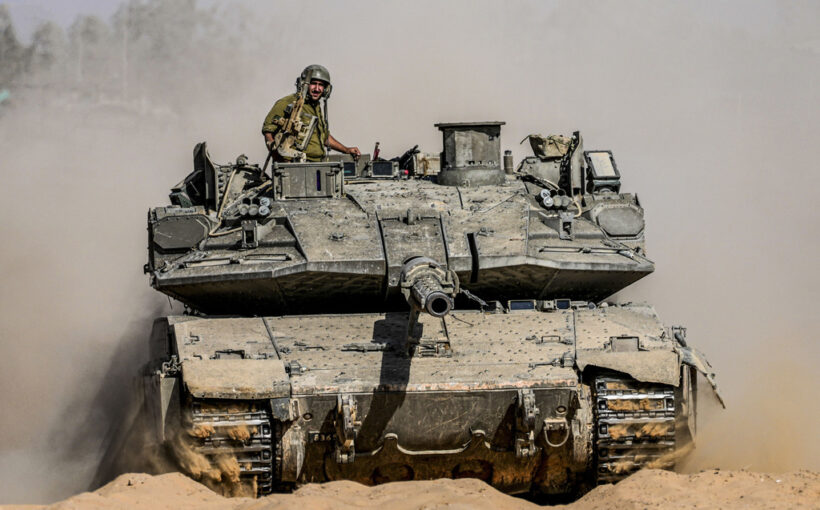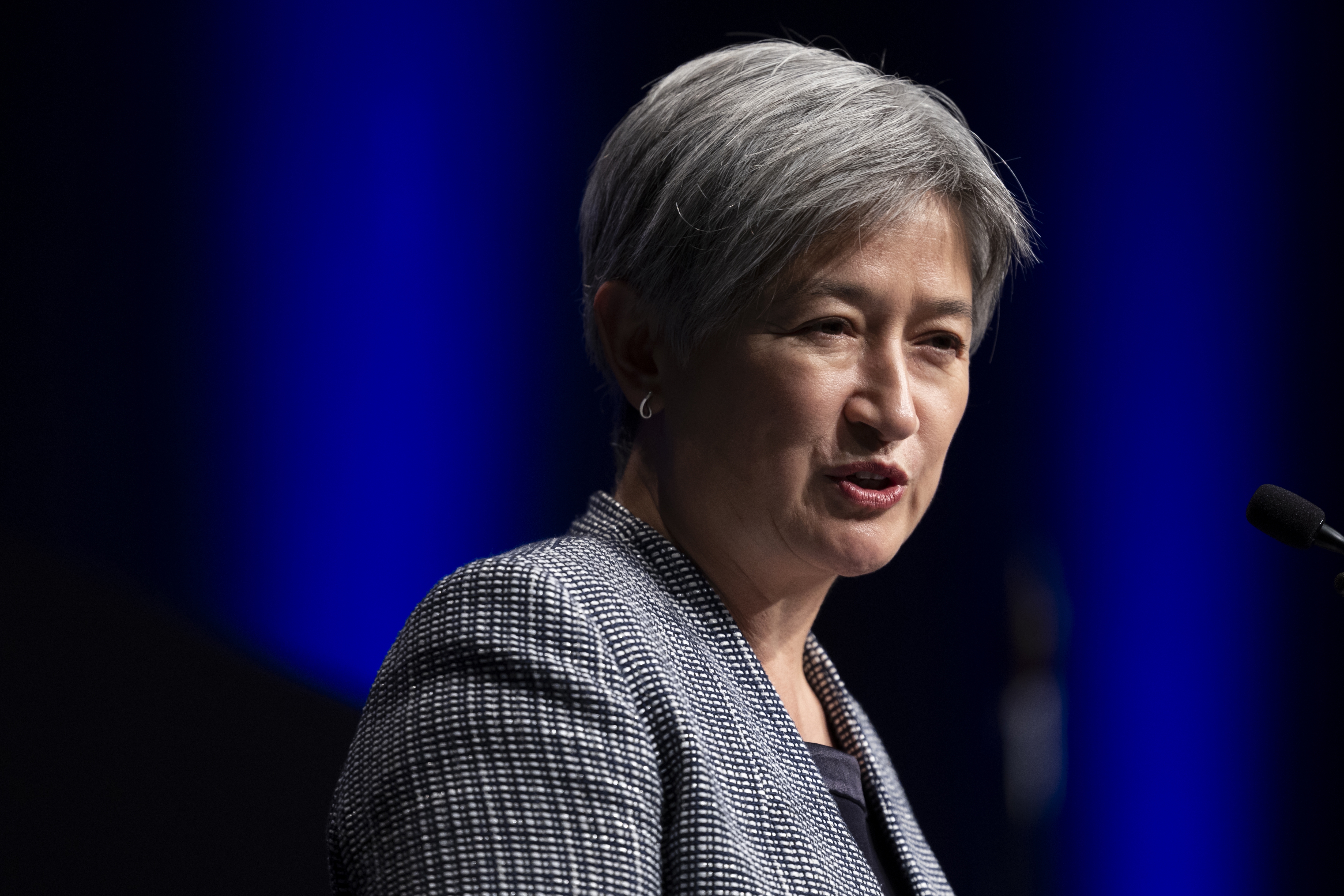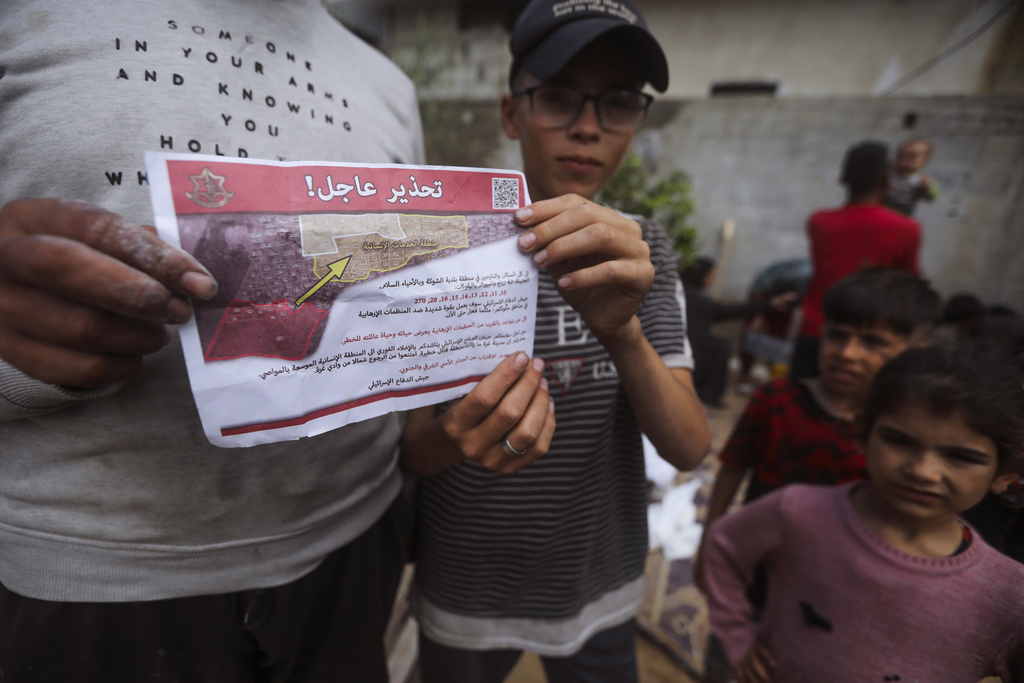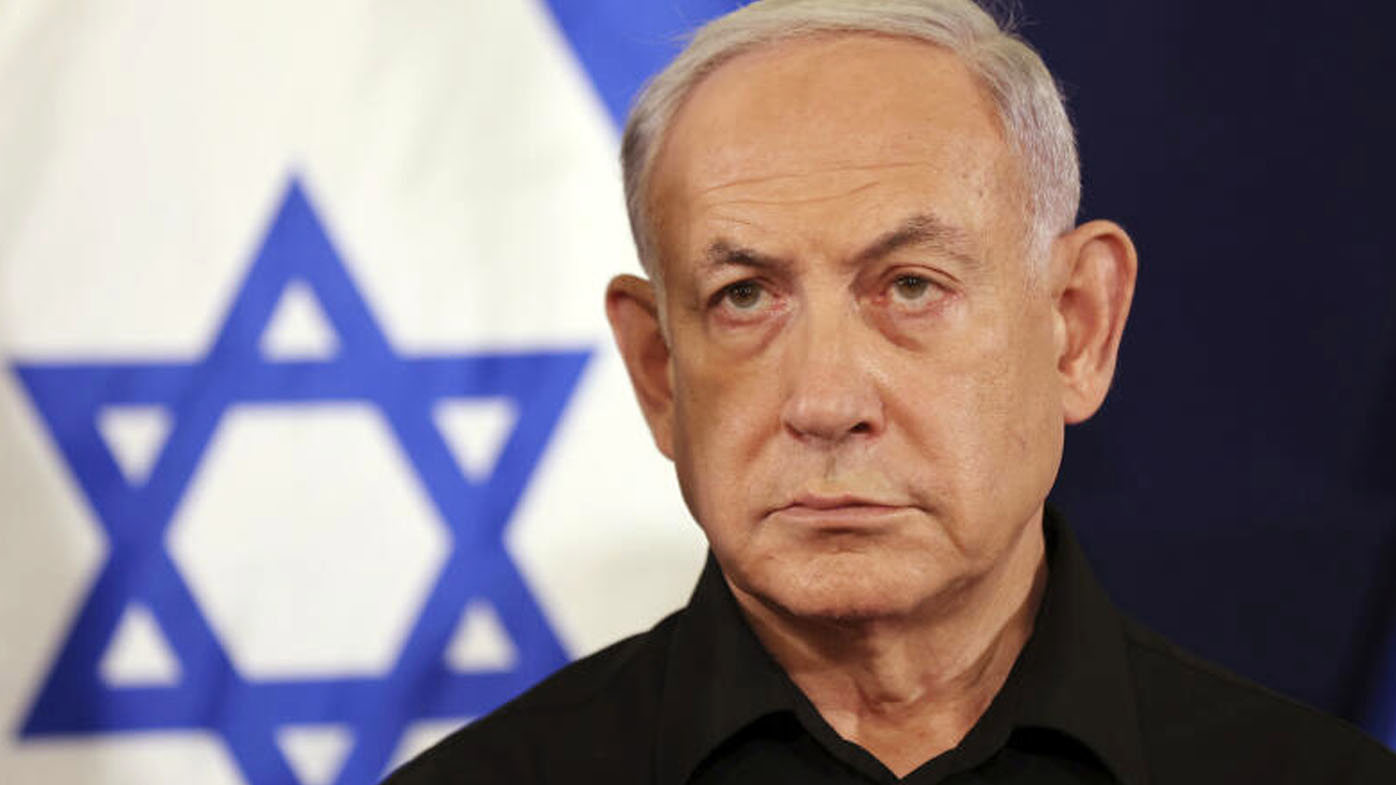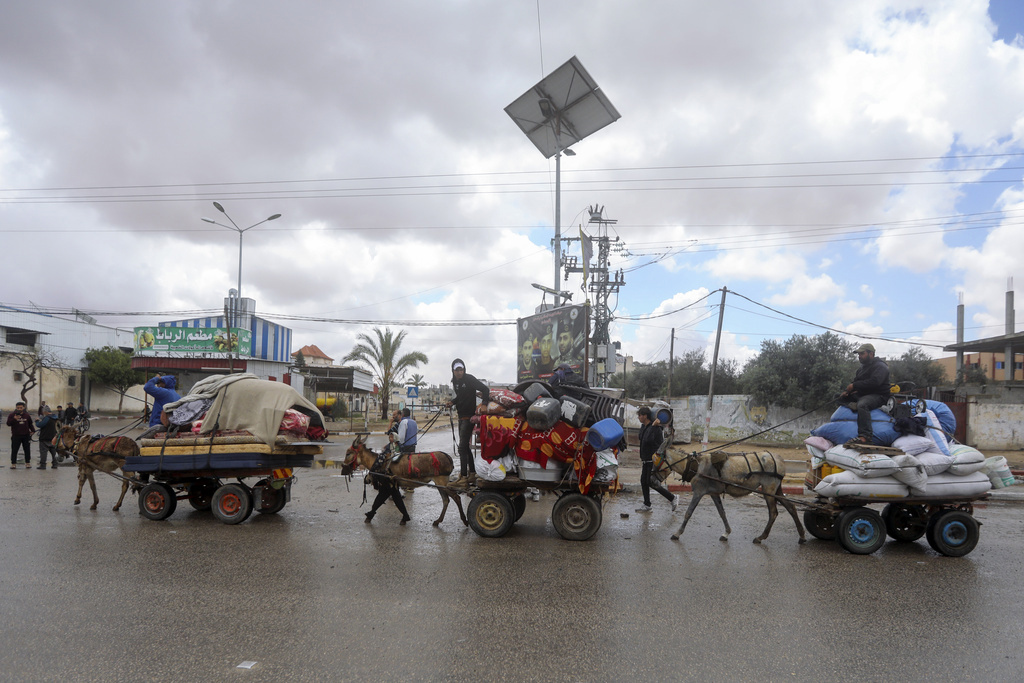The Israeli army has ordered tens of thousands of Palestinians in Gaza’s southern city of Rafah to start evacuating from the area, signalling a long-promised ground invasion there could be imminent.
Monday’s announcement complicates last-ditch efforts by international mediators, including the director of the CIA, to broker a ceasefire.
The militant Hamas group and Qatar, a key mediator, have warned that invading Rafah — along the border with Egypt — could derail the talks, and the United States has repeatedly urged Israel against the invasion.
Australia and several other western countries have also urged Israel not to go ahead with an invasion.
“Australia is gravely concerned by the prospect of a major Israeli ground offensive into Rafah,” a spokesperson for Foreign Minister Penny Wong said on Monday night.
“More than half of Gaza’s 2.3 million population has sought shelter in Rafah, from the fighting elsewhere.
“Australia, the G7 and so many countries have called on the Netanyahu government to change course.
“The Foreign Minister has made clear Australia’s view that Israel should not go down this path.”
Israel has described Rafah as the last significant Hamas stronghold after seven months of war, and its leaders have repeatedly said the invasion is necessary to defeat the Islamic militant group.
Lieutenant Colonel Nadav Shoshani, an army spokesman, said some 100,000 people were being ordered to move to a nearby Israel-declared humanitarian zone called Muwasi.
He said Israel was preparing a “limited scope operation” and would not say whether this was the beginning of a broader invasion of the city.
But after October 7 and the unprecedented attack on southern Israel by Hamas, Israel did not formally announce the launch of a ground invasion that continues to this day.
Late on Sunday (Monday AEST), Defence Minister Yoav Gallant told US Secretary of Defence Lloyd Austin that Israel had no choice but to act in Rafah.
On Sunday, Hamas carried out a deadly rocket attack from the Rafah area that killed four Israeli soldiers.
Shoshani said Israel published a map of the evacuation area, and that orders were being issued through air-dropped leaflets, text messages and radio broadcasts.
He said Israel has expanded humanitarian aid into Muwasi, including field hospitals, tents, food and water.
Israel’s army said on the social platform X that it would act with “extreme force” against militants, and urged the population to evacuate immediately for their safety.
Israel’s plan to invade Rafah has raised global alarm because of the potential for harm to more than a million Palestinian civilians sheltering there.
About 1.4 million Palestinians — more than half of Gaza’s population — are jammed into the city and its surroundings.
Most of them fled their homes elsewhere in the territory to escape Israel’s onslaught and now face another wrenching move or the danger of staying under a new assault.
They live in densely packed tent camps, overflowing UN shelters or crowded apartments, and are dependent on international aid for food, with sanitation systems and medical facilities infrastructure crippled.
The UN agency that has helped millions of Palestinians in Gaza and the West Bank for decades, known as UNRWA, warned on Monday of devastating consequences of a Rafah offensive, including more civilian suffering and deaths.
The agency said it would not leave but stay in Rafah as long as possible to continue providing lifesaving assistance.
Egypt’s Rafah crossing, a main transfer point for aid going into Gaza, lies in the evacuation zone. The crossing remained open on Monday after the Israeli order.
But even as the US, Egypt and Qatar have pushed for a ceasefire agreement, Israeli Prime Minister Benjamin Netanyahu repeated last week that the military would move on the city “with or without a deal” to achieve its goal of destroying the Hamas militant group.
On Monday, Netanyahu accused Hamas of “torpedoing” the hostage deal and not budging from its “extreme demands” while vowing to stop the militants from retaking control of Gaza.
In a fiery speech on Sunday evening marking the country’s annual Holocaust memorial day, he rejected international pressure to halt the war, saying that “if Israel is forced to stand alone, Israel will stand alone”.
A Hamas official told The Associated Press that Israel is trying to pressure the group into making concessions on the ceasefire, but that it won’t change its demands. Hamas wants a full end to the war, withdrawal of Israeli troops from Gaza and the eventual reconstruction of the strip in exchange for the Israeli hostages held by the militants.
Shoshani would not say whether the upcoming Rafah operation is a response to Sunday’s attack by Hamas that forced Israel’s key border crossing for aid to close. He said it would not affect how much aid enters Gaza as other crossing points remain operational.
He wouldn’t comment, however, on US warnings not to invade and wasn’t clear on whether Monday’s evacuation order was coordinated with Egypt.
Egypt, a strategic partner of Israel, has said that an Israeli military seizure of the Gaza-Egypt border — which is supposed to be demilitarised — or any move to push Palestinians into Egypt would threaten its four-decade-old peace treaty with Israel.
In Rafah, people received flyers on Monday morning in Arabic detailing which neighborhood blocks needed to leave and where humanitarian zones had expanded to.
The flyers said that aid services would spread from Deir al Balah in the north to the center of Khan Younis city in the middle of the Gaza Strip.
“Anyone found near (militant) organisations endangers themselves and their family members. For your safety, the (army) urges you to evacuate immediately to the expanded humanitarian area,” it read.
Palestinians in Rafah said people gathered to discuss their options after receiving the flyers. Most said they did not want to move alone and preferred to travel in groups.
“So many people here are displaced and now they have to move again, but no one will stay here it’s not safe,” Nidal Alzaanin told The Associated Press by phone.
A father of five, Alzaanin works for an international aid group and was displaced to Rafah from Beit Hanoun in the north at the start of the war. He said people are concerned since Israeli troops shot at Palestinians as they moved during previous evacuation orders.
Alzaanin said he has packed his documents and bags but will wait 24 hours to see what others do before relocating. He said he has a friend in Khan Younis whom he hopes can pitch a tent for his family.
But some people say they’re too tired and fed up of months of devastation to flee again.
Sahar Abu Nahel was displaced to Rafah with 20 of her family, her husband is being held by Israel, her son-in-law in missing, she said.
“Where am I going to go? I have no money or anything. I am seriously tired as are (my) children,” she said wiping tears from her cheeks.
“Maybe its more honorable for us to die. We are being humiliated.”
